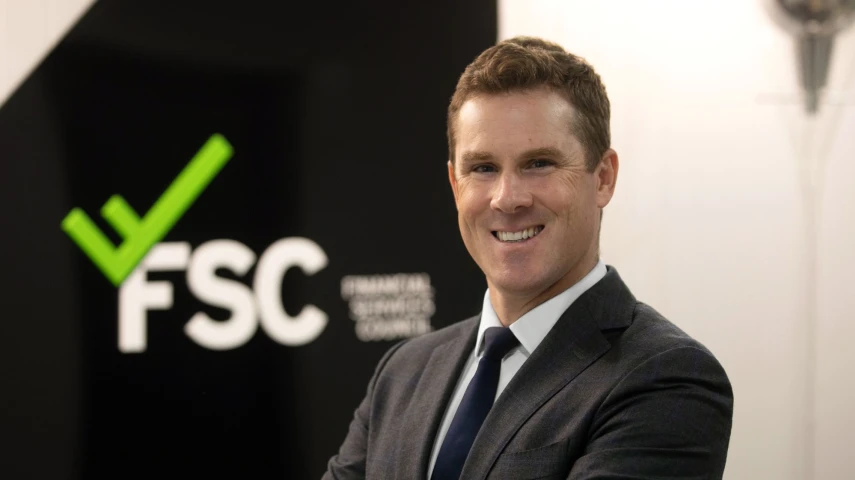Aussie $4.3tn fund management industry ‘falls short’ on global stage



Australia’s fund management industry has grown significantly to $4.3 trillion in funds under management (FUM), however complex regulatory policy prevents the nation from properly competing with international peers.
The Financial Services Council (FSC) has released its State of the Funds Management Industry report prepared by KPMG, which examines Australia’s fund management landscape alongside global peers.
The industry’s FUM has risen substantially from $3.8 trillion in June 2020 to $4.3 trillion currently, a growth of 13 per cent. The superannuation system accounts for 65 per cent of these flows, it said.
With 647 fund managers operating in Australia, the financial services sector indirectly employs approximately 560,000 people across industries.
Over 3,650 managed investment schemes exist alongside more than 6,450 products offered by Australian fund managers.
However, the report revealed that only 6.5 per cent of overall FUM is sourced from overseas. This is relatively small compared to 78 per cent of FUM in Singapore, 90 per cent in Ireland and 95 per cent in Luxembourg.
Blake Briggs, FSC chief executive, said Australia’s potential as a major exporter of fund management services remains unrealised.
“Australia has a globally sophisticated funds management industry, with low fees by global standards, but is missing out on the opportunity to manage offshore due to regulatory and tax policy settings that fall short of international peer comparisons,” he explained.
Australia’s domestically focused sector is largely due to inward-looking regulatory policy settings, as opposed to introducing more ambitious policies for Australia to compete globally, the CEO added.
“The significant foreign capital managed in other financial centres is not an accident. This has been achieved through a deliberate focus by these jurisdictions on regulatory and tax reform that support the global attractiveness and competitiveness of their funds management sectors.”
Cecilia Storniolo, KPMG partner for asset and wealth management, explained that fund management reform in Australia has often led to more complexity from a global perspective.
She gave the example of Australia’s numerous different withholding tax rates: “This is difficult to explain to foreign investors, and is off-putting, given they have attractive alternative markets.”
Storniolo added: “Our international peers have been successful in maintaining legislative focus and acting quickly to amend policy settings to help grow the export and imports of financial services.”
Natalie Raju, KPMG partner for corporate tax, echoed these thoughts and urged for more clear and competitive tax and regulatory settings to attract overseas investors.
The report gave five key recommendations to enhance Australia’s fund management landscape:
- Develop transition arrangements to deliver a globally competitive Corporate Collective Investment Vehicle (CCIV).
- Update and review tax rules to align with global peers.
- Convert old legacy funds management products into modern products.
- Legislate climate-related financial risk disclosures.
- Continue examining the Your Future, Your Super (YFYS) performance test to ensure benchmarks aren’t constraining investment decisions.
Recommended for you
Evidentia’s chief investment strategist Nathan Lim has announced his retirement after a 30-year career.
GQG Partners has marked its fifth consecutive month of outflows as its AI concerns lead to fund underperformance but overall funds under management increased to US$166.1 billion.
Apostle Funds Management is actively pursuing further partnerships in Asia and Europe but finding a suitable manager is a “needle in a haystack”.
Managed account provider Trellia Wealth Partners, formed from the merger between Betashares and InvestSense, has appointed its first managing partner.












One of the barriers is Treasury Australia, which was told to Politicians countless times. Hong Kong is the 3rd financial capital of the world after London and New York. Treasury has been avoiding a Double Taxation Agreement (DTA) with Hong Kong for the last 20 years. AustCham in Hong Kong tried lobbying the former Morrison Government (via Hon. Ian Robb), which said we will do the DTA agreement with Hong Kong after the Free Trade Agreement. No DTA action has been done after FTAs with China and Hong Kong. FTAs and DTAs are not conditional on each other, but can be complimentary. On 23 October, ABC Business Reporter Daniel Ziffer reported "Hundreds of billions of dollars held by Australians in foreign tax havens, report estimates" of which around $1 billion is probably sitting in Hong Kong banks doing nothing after profit shifting. A DTA provides information exchange and that $1 billion can come back into Australia for investing in our Primary Capital Markets, if Treasury provides an incentive. Secondly, the DTA would iron-out the tax complications for investment funds management from overseas to increase. Back over 10 years ago when Hon. Chris Bowen was Financial Services Minister, he visited Hong Kong and said 5% was from overseas funds management and he could not understand why it was not higher, given Australia has strong compliance regime. Now it is around 6.3% from overseas. Federal Labor thinks its Funds Management Passport in APEC region will do the trick (?) The question I ask, when is Treasury going to move forward into the 21st APEC century and form a DTA with Hong Kong, the 3rd financial capital of the world? This question should be put by the Senate Economics References Committee to Treasury. [Note: Ross Smith was a member of the Finance, Law Tax Committee in the Australian Chamber of Commerce AustCham in Hong Kong from 2015 to 2019, which was advocating a DTA. He wrote a paper for a DTA pensions clause that allows superannuation transfers across borders to maintain retirement funding, which would comply with ESG Charter from the UN in New York and with the social protection, financial floors from the International labour Organisation in Switzerland.]
One of the barriers is Treasury Australia, which was told to Politicians countless times. Hong Kong is the 3rd financial capital of the world after London and New York. Treasury has been avoiding a Double Taxation Agreement (DTA) with Hong Kong for the last 20 years. AustCham in Hong Kong tried lobbying the former Morrison Government (via Hon. Ian Robb), which said we will do the DTA agreement with Hong Kong after the Free Trade Agreement. No DTA action has been done after FTAs with China and Hong Kong. FTAs and DTAs are not conditional on each other, but can be complimentary. On 23 October, ABC Business Reporter Daniel Ziffer reported "Hundreds of billions of dollars held by Australians in foreign tax havens, report estimates" of which around $1 billion is probably sitting in Hong Kong banks doing nothing after profit shifting. A DTA provides information exchange and that $1 billion can come back into Australia for investing in our Primary Capital Markets, if Treasury provides an incentive. Secondly, the DTA would iron-out the tax complications for investment funds management from overseas to increase. Back over 10 years ago when Hon. Chris Bowen was Financial Services Minister, he visited Hong Kong and said 5% was from overseas funds management and he could not understand why it was not higher, given Australia has strong compliance regime. Now it is around 6.3% from overseas. Federal Labor thinks its Funds Management Passport in APEC region will do the trick (?) The question I ask, when is Treasury going to move forward into the 21st APEC century and form a DTA with Hong Kong, the 3rd financial capital of the world? This question should be put by the Senate Economics References Committee to Treasury. [Note: Ross Smith was a member of the Finance, Law Tax Committee in the Australian Chamber of Commerce AustCham in Hong Kong from 2015 to 2019. He was advocating and wrote a paper for a DTA pensions clause that allows superannuation transfers across borders to maintain retirement funding under ESG Charter from UN in New York and with the social protection, financial floors from the International labour Organisation in Switzerland.]